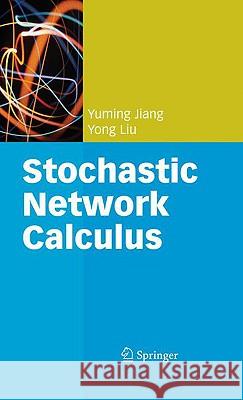Stochastic Network Calculus » książka
Stochastic Network Calculus
ISBN-13: 9781848001268 / Angielski / Twarda / 2008 / 232 str.
Network calculus is a theory dealing with queuing systems found in computer networks. Its focus is on performance guarantees. Central to the theory is the use of alternate algebras such as the min-plus algebra to transform complex network systems into analytically tractable systems. To simplify the ana- sis, another idea is to characterize tra?c and service processes using various bounds. Since its introduction in the early 1990s, network calculus has dev- oped along two tracks-deterministic and stochastic. This book is devoted to summarizing results for stochastic network calculus that can be employed in the design of computer networks to provide stochastic service guarantees. Overview and Goal Like conventional queuing theory, stochastic network calculus is based on properly de?ned tra?c models and service models. However, while in c- ventional queuing theory an arrival process is typically characterized by the inter-arrival times of customers and a service process by the service times of customers, the arrival process and the service process are modeled in n- work calculus respectively by some arrival curve that (maybe probabilis- cally) upper-bounds the cumulative arrival and by some service curve that (maybe probabilistically) lower-bounds the cumulative service. The idea of usingboundstocharacterizetra?candservicewasinitiallyintroducedfor- terministic network calculus. It has also been extended to stochastic network calculus by exploiting the stochastic nature of arrival and service processes.











